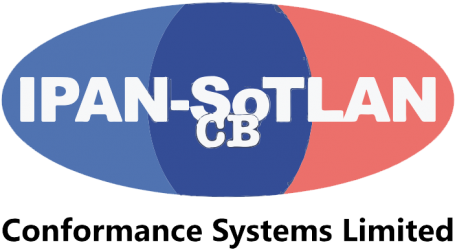Environmental Analyst (EA) candidates should be acquainted with the theory, principles and applications of chemical and microbiological techniques applicable to environmental laboratory.
Environmental Analyst (EA) candidates should be acquainted with the theory, principles and applications of chemical and microbiological techniques applicable to environmental laboratory.
Environmental Analyst (EA) Certification is designed to demonstrate competency at the lead/advanced technical level. It implies competence in the knowledge, skills and abilities required to perform the Core Duties of an advanced and skilled environmental laboratory analyst.
Education:
1) Higher National Diploma (HND) or Bachelor of Science (B. Sc.) Degree in Biochemistry; Chemical Engineering; Chemistry; Environmental Science/Toxicology; Industrial Chemistry; or Microbiology.
2) Masters of Science (M. Sc.) or Doctor of Philology (Ph.D.) Degree in Biochemistry; Chemical Engineering; Chemistry; Environmental Science/Toxicology; Industrial Chemistry; or Microbiology.
Work Experience:
i) For Certified Laboratory Analyst (CLA) or Certified Water Analyst (CWA), a minimum of one (1) year cognate experience in an environmental laboratory.
ii) For (1) above, a minimum of three (3) years cognate post-qualification experience in an environmental laboratory.
iii) For (2) above, a minimum of one (1) year cognate post-qualification experience in an environmental laboratory.
In addition, candidates should be able to personally take readings and measurements from laboratory apparatus and equipment and walk within the laboratory work area without any attendant safety concerns.
Persons certified as Environmental Analyst are expected to have acceptable competency when carrying out applicable tasks that are required for an advanced and skilled environmental laboratory analyst. These applicable tasks are called Core Duties and the certification test measures knowledge, skills and abilities needed to perform these Core Duties.
Core Duties for Environmental Analyst
i) Core duties identified on the Test Content specifications for Laboratory Analyst.
ii) Performs laboratory analysis of environmental samples using basic and high precision laboratory equipment e.g. AAS, GC, UV/Visible Spectrophotometer, etc.
iii) Assists in the development of new Standard Operating Procedure (SOP) and techniques of analysis.
iv) Operates and routinely calibrates/maintains laboratory equipment related to environmental analysis including field laboratory equipment for in situ testing.
v) Plans, supervises and reviews work performed and data generated during laboratory analysis.
vi) Understands the applicable international and national standards and requirements in respect of environmental samples and reporting.
vii) Analyzes and interprets laboratory data and make appropriate recommendations regarding environmental samples in line with international and national standards and regulations.
viii) Provides initial reports on laboratory analysis/results and certificates of analysis, reviews data prepared by subordinates, reviews literature on technical issues and prepares corresponding reports.
iv) Maintains the quality assurance programme as required by International/National Standards and Regulations.
x) Interprets and implements organizational policies and procedures
xi) Participates in general laboratory management and administration including selection, training, monitoring/evaluation and preparation of subordinates’ performance reviews.
An outline of Test Content Areas is listed below. Each content area is a Knowledge, Skill or Ability that is needed to carry out the Core Duties which are enumerated above. To demonstrate acceptable competency, most of the Knowledge, Skills or Abilities are equally important and required to perform the Core Duties.
Test Content Areas for CSLA
Knowledge, Skill and Ability as outlined in the Test Contents for Certified Laboratory Analyst.
Knowledge of:
i) Physical, chemical, microbiological properties, parameters and basic processes regarding environmental samples.
ii) Methods and principles of qualitative, quantitative and microbiological analyses of environmental samples
iii) Basic principles, uses and maintenance of basic and high precision laboratory equipment for analysis of environmental samples, including the routine calibration//validation of laboratory equipment that does not require external calibration expertise.
iv) Relevant and applicable up-to-date International and national standards and regulations regarding environmental samples.
v) Proper Chemical/toxicological management within a laboratory including occupational hazards, standard safety practices and good laboratory practices.
Skill to:
i) Carry out analysis of environmental samples with little supervision.
ii) Communicate clearly and concisely in oral and written English language.
iii) Establish and maintain good interpersonal and effective working relationships with superiors and supervision of subordinates.
Ability to:
i) Perform physical, chemical, microbiological and toxicological analyses of environmental samples.
ii) Recommend or implement corrective action for analytical/instrumentation procedures (i.e. troubleshoot as appropriate and necessary).
iii) Evaluate, interpret, and apply the results of laboratory testing, including advanced laboratory calculations, use of statistical tools and computer packages
iv) Supervise, train and evaluate the activities/performance of subordinates.
